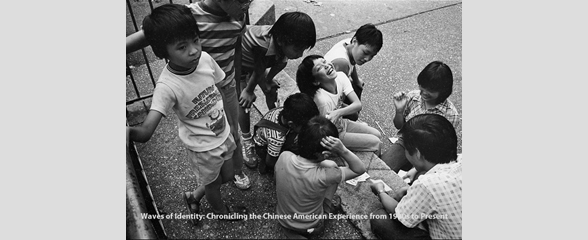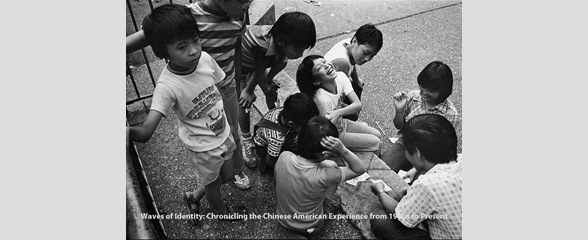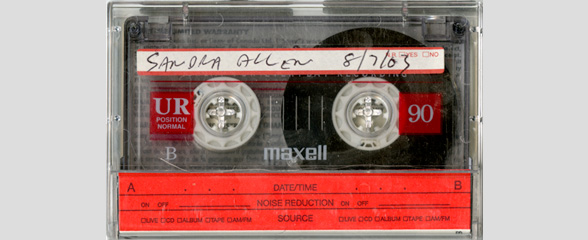 | Sandra K. Lee, a Chinese American of Taishanese descent, is the CEO and chair of Harold L. Lee & Sons, Inc., Insurance Services. Born in New York City, she lived in Flushing until age seven before moving to Great Neck in Long Island. She attended the University of Rochester, majoring in liberal arts and education. Seeking to be more involved in the Asian American Movement, she moved to California in the early 1970s to join the Asian Studies Department at UC Berkeley, where she helped establish Asian Health Services to support immigrants.
The activism of Sandra in the Asian American Movement led her to pursue a career in nursing. She studied nursing in San Francisco and completed her studies in Harlem, New York. During the 1970s, she worked at the Chinatown Health Clinic, playing a pivotal role in its growth by coordinating volunteers, writing grants, and securing funding. Additionally, Sandra worked at the Asian Community Center, educating Chinese residents on their rights through bilingual workshops and legal clinics and raising awareness about issues in Latino and Black communities. She stresses the importance of Asian Studies departments, hands-on learning through community involvement, and collaboration with other communities to support those in need.
Sandra joined the insurance business of her family, Harold L. Lee & Sons, part-time in 1981 and transitioned to full-time by 1984. The business, one of the oldest Chinese insurance brokerages in the U.S., is highly respected by major American insurance companies. The company became a community resource, helping new immigrants with translation and other services. Despite increased competition, the business thrived by maintaining strong community ties and treating clients like family. Sandra attributes the success of the company to its community focus, long-term employees, family support, and expanded services like health insurance. Her story highlights the interconnectedness of community service, healthcare, and business in addressing the needs of diverse communities. |  | In this interview, David Eng and Ming Mui reflect on the rich history and challenges faced by their family business, Fong Inn Too, a retail and wholesale shop specializing in freshly made traditional Taishanese staples. Davids grandfather, a Taishanese native who immigrated from Cuba, founded the shop in 1931 with several partners. Managed later by Davids parents, the shop became known for its unique family recipes, which required extensive preparation and drew a loyal customer base. David discusses the impact of changing demographics, particularly the shift away from traditional production practices among younger generations and the increased competition from modern businesses. The family business consequently struggled as the older generation of customers dwindled and newer immigrants preferred more convenient options.
David also shares the background and story of various family members who ran the shop, including its founding by his grandfather, his grandfathers sponsorship of his father as a paper son, and his mother immigrating as a war bride and taking over management of operations after his father fell ill despite significant challenges.
David Eng and Ming Mui touch on their broader community impact, noting how the family brought many people from their home village to New York, creating a support network. Despite efforts to modernize and sustain the business, including negotiations with nonprofit organizations for funding, the shop ultimately closed due to economic pressures and a lack of interest from the next generation. David emphasizes the contributions of his family to Chinatown, their resilience, and the enduring legacy they left in the community, even as he navigates the complexities of maintaining and preserving this heritage in a rapidly changing world. |  | Patrick Adiarte is a Filipino American actor and dancer born in 1943. Patrick played Prince Chulalongkorn in Rodgers and Hammerstein’s musical, “The King and I” in 1956, and Wang San in the 1958 production and 1961 movie version of “Flower Drum Song.” In this interview, Patrick discusses “Flower Drum Song” and his acting career. He goes into particular detail about Flower Drum Song’s casting process and his recollection of opening night. This interview is one of a series of 18 interviews that author David Lewis Hammarstrom conducted in 2003 as part of research for his book, Flower Drum Songs: The Story of Two Musicals (2006). |  | Alvin Ing (1932 – 2021), a pioneer Asian American actor and singer, has performed in more productions of “Flower Drum Song” than any other actor. His audition for Rodgers and Hammerstein’s original 1958 musical production did not land him a role, however he was cast as an understudy for the character of Wang Ta in the accompanying national tour. He continued to perform in numerous subsequent productions, most recently as Uncle Chin in the updated and revised 2002 Broadway revival by playwright David Henry Hwang. In this interview, Ing recalls his experience auditioning, performing and touring. He also shares first impressions and memories of Rodgers and Hammerstein and fellow cast members, makes comparisons between the original, revival, and film versions, and discusses stereotypes, audience reception, and financial difficulties of the show. This interview is one of a series of 18 interviews that author David Lewis Hammarstrom conducted in 2003 as part of research for his book, Flower Drum Songs: The Story of Two Musicals (2006). |  | Wonci Lui was a part of the dance ensemble in Rodgers and Hammerstein’s original production of Flower Drum Song from 1958 to 1960. Lui, born in 1930, is a Chinese American actress and dancer known for her performance in Kismet as an Arabian dancer. In this interview, Wonci Lui talks about her experience as a dancer in the original production of “Flower Drum Song,” the opening night, and her recollection of director Gene Kelly. Lui discusses how she was cast in "Flower Drum Song," Asian stereotypes in the show, and the development of the musical leading up to opening night. This interview is one of a series of 18 interviews that author David Lewis Hammarstrom conducted in 2003 as part of research for his book, Flower Drum Songs: The Story of Two Musicals (2006). Please note that this interview was conducted by phone and the audio quality is extremely poor throughout. |  | Arabella Hong was cast as Helen Chao in Rodgers and Hammerstein’s 1958 musical “Flower Drum Song.” In this interview, Arabella discusses her experience on the show, including auditioning for the role, receiving vocal coaching, and making changes to her scene. She also provides a window into the creation and honing of her song “Love, Look Away” and the writing of the script. Rather than being given a printed script, she shares that she was observed and the part written for her. Topics she covers in the interview also include Gene Kelly and issues with direction, stories about and interaction with Rodgers and Hammerstein, her view on Asian stereotypes in the original “Flower Drum Song,” the show’s fidelity to C. Y. Lee’s book, comparisons between the original and new “Flower Drum Song,” why the show failed on Broadway, her view on reviving shows from another period, a discussion of various composers, and her nostalgia for the beautiful melodies of the past. This interview is one of a series of 18 interviews that author David Lewis Hammarstrom conducted in 2003 as part of research for his book, Flower Drum Songs: The Story of Two Musicals (2006). |  | David Lober was part of the dance ensemble in Rodger and Hammerstein’s 1958 musical “Flower Drum Song.” He has also performed in numerous musicals during the 1940s through 1960s such as “Wonderful Town,” “My Fair Lady,” “Here’s Love,” and “Fiddler on the Roof.” In this interview, David shares various aspects of his experience on “Flower Drum Song,” including auditioning, working with choreographer Carole Haney and director Gene Kelly, serving as dance captain, being let go during the national tour, appealing his firing through an Actors’ Equity arbitration, and meeting his wife, who was also a dancer on the show. He also offers his thoughts on critiques that the show modeled offensive Asian stereotypes, David Henry Hwang’s modern rewriting of the show and whether it was sacrilegious to rewrite musicals from the golden era, and how he thinks musical theater has changed since the 1940s and 1950s. This interview is one of a series of 18 interviews that author David Lewis Hammarstrom conducted in 2003 as part of research for his book, Flower Drum Songs: The Story of Two Musicals (2006). |  | Baayork Lee was one of the children cast in the ensemble of Rodgers and Hammerstein’s 1958 production of “Flower Drum Song.” Asked to share memories of rehearsals or shows, she recalls working closely with choreographer Carole Haney on some of the dance numbers, understudying and unexpectedly going on as “Fan Tan Fannie” for one performance, and watching and learning dance steps on the side. She also offers her views on such topics as Asian stereotypes in the original show, David Henry Hwang’s rewriting of “Flower Drum Song,” why the show did not succeed on Broadway, racial cross-casting, and opportunities for Asians in the arts. This interview is one of a series of 18 interviews that author David Lewis Hammarstrom conducted in 2003 as part of research for his book, Flower Drum Songs: The Story of Two Musicals (2006). |  | Ronald Banks was cast as Chao in David Henry Hwang’s 2001 Broadway-bound revival of "Flower Drum Song” at Center Theatre Group/Mark Taper Forum in Los Angeles. In addition, Banks understudied two leads, Wang Shi Yang/Sammy Fong and Chinn, for this show. In this interview, Ronald discusses his experience on “Flower Drum Song” and what it was like being a performer in New York City and Los Angeles. His interview covers such topics as the production, rehearsals, changes in the script, the impact of 9/11, Asian stereotypes, his Japanese heritage, and reflections on being an Asian American and American actor. This interview is one of a series of 18 interviews that author David Lewis Hammarstrom conducted in 2003 as part of research for his book, Flower Drum Songs: The Story of Two Musicals (2006). Please note that this interview was conducted by phone and the audio quality is extremely poor throughout. |  | Sandra Allen was cast as Linda Low in the 2002 Broadway revival of "Flower Drum Song," a revision and update of the 1958 Rodgers and Hammerstein production of the musical of the same title by playwright David Henry Hwang. In this interview, Sandra discusses her experience on "Flower Drum Song" and what it was like being a performer in New York City and Los Angeles. She shares her background and thoughts about the Broadway production. This interview is one of a series of 18 interviews that author David Lewis Hammarstrom conducted in 2003 as part of research for his book, Flower Drum Songs: The Story of Two Musicals (2006). Please note that this interview was conducted by phone and the audio quality is extremely poor throughout. |









